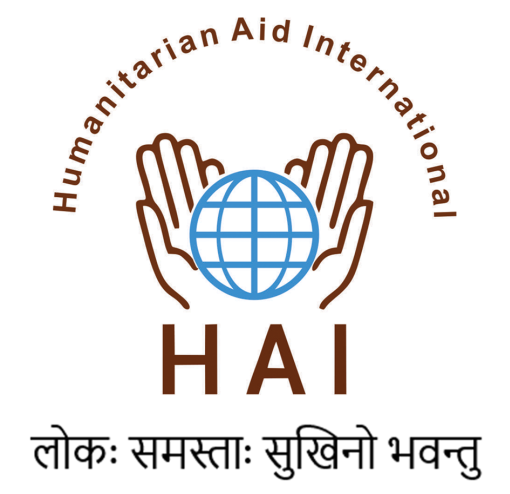LOCAL Charter of Accountability
Localising Humanitarian Action – Case Studies
Position Paper on Localisation
Role of Pooled Fund, Intermediaries in Localization and Decolonization of Aid
After having worked for over three decades, mainly with international NGOs (INGOs) within India and elsewhere, and feeling disillusioned with the international aid architecture, I decided to return to India to establish Humanitarian Aid International (HAI), together with a few other like minded people. HAI aims to evolve on an Indian value system, resourced by Indians, including people of Indian origin, to work across India while also trying to complement the government’s efforts on South-South cooperation. The realisation came soon about how difficult it is for Indian NGOs to access even Indian funding as Indian fundraising space is largely controlled and accessed by country offices of INGOs, registered in India and calling themselves an Indian organisation. That compelled me to wonder: Are we in a new phase of colonialism?
Please click here to continue reading.
A 2019 study published by the EU on ‘Societies outside Metropolises: The role of civil society organisations in facing populism’ recommends that “Concrete and consistent actions over time are needed in order to empower civil society organisations in those regions to deliver their mission and play their role of speaking on behalf of those who are underrepresented and advocating for the marginalised, and to educate and create a kind of genuine bond between different communities”. However, the way the international aid sector currently operates most instrumentalises local and national CSOs as subcontractors for their agendas, rather than supporting them as independent civil society actors catering to the real needs and priorities of the community and encouraging their governments to act as the duty-bearer and protect people’s fundamental rights. The Covid19 pandemic has extensively and adversely impacted the aid architecture, at a time when the lifesaving assistance to population facing natural disasters or protracted crises is most needed. Local organisations are facing further marginalisation at a time when they are at the forefront of the response, be it Covid19 health response or economic or other crises caused during this period. Download Statement.
Dear Grand Bargain Sherpas,
We, one of the multi-country networks of local actors actively engaged on localisation, know that the next annual meeting of Grand Bargain on 24-25 June 2020, is open only to the Grand Bargain Signatories, and only Sherpas will be able to use audio and video. We see the signatories wanting to talk about the future of Grand Bargain and strengthening local action, without presence of local actors around the table who continue to face obstacles to get included in a process, designed for their empowerment. We have tried to proactively engage with the localisation work stream but have been very disappointed with the lack of response. We have seen systematic exclusion and discrimination against meaningful participation of a diversity of local actors in many of these processes.
We believe you share our concern of seeing less than expected progress on most of the workstreams, according to the self-reports of the signatories. The World Humanitarian Summit triggered several good processes, intending to reform the humanitarian architecture and practices for overall aid efficiency, mitigation of needs and better support to the affected population. Given the slow progress, we are hopeful that the Signatories would use the next annual meeting to introspect on the reasons for the slow progress, define the mechanisms to fix the accountability and answerability and come up with a future roadmap which is more inclusive, equitable and respectful of the local actors.
The local actors do not want to remain passive beneficiaries of a change process. They rather want to have equal stake, ownership, shared leadership and representation across all the processes and the discussion fora. We, as one of the committed network of local actors, firmly believe that the signatories are genuinely interested to deliver on the Grand Bargain commitments by overcoming the barriers. As we do not have the privilege of being present, we would like to request that you kindly reflect on the following issues during the annual meeting in our absence:
Although, local actors are overwhelmingly not allowed to participate in the annual meetings, we are still optimistic that our concerns would be heard and reflected on during the 2-days of the meeting, and that appropriate space would be created for us for future collaboration.
In the humanitarian architecture, each of us have to play the complementary role. As Signatories, you have acknowledged the significant role local actors play during a humanitarian response. We have equal realisation of the complementary role you play to strengthen us. Hopefully, next time we would be sitting across the table as equals to exchange ideas.
Members of the Alliance for Empowering Partnership
#LocalActorsMatter
Date: 05 April 2020
HAI has mobilised a large group of volunteers and established coordination with the Delhi government and local administrative units to complement the efforts of the state and national government in dealing with the crisis caused by the coronavirus pandemic. HAI is currently focusing on the National Capital Region of Delhi, while trying to expand its activities in the states of Assam, West Bengal, Maharashtra, Karnataka, Uttar Pradesh, Uttarakhand and Haryana. HAI’s current focus is on the population working in informal sector and daily wage earners who have suddenly become income and food insecure since the lockdown has been announced. Since the state response capacity has been overwhelmed, HAI is also helping the state government and the local administrative units with relief supply and use of technology, particularly for surveillance. HAI’s key achievements are presented below:
Activities at a glance:
Plans:
The Bulletin can be downloaded from here.
